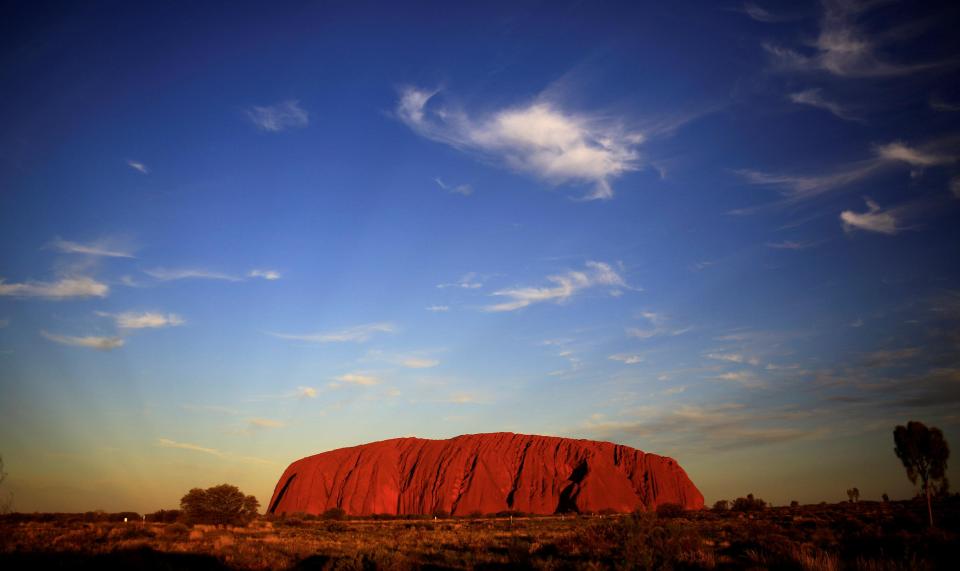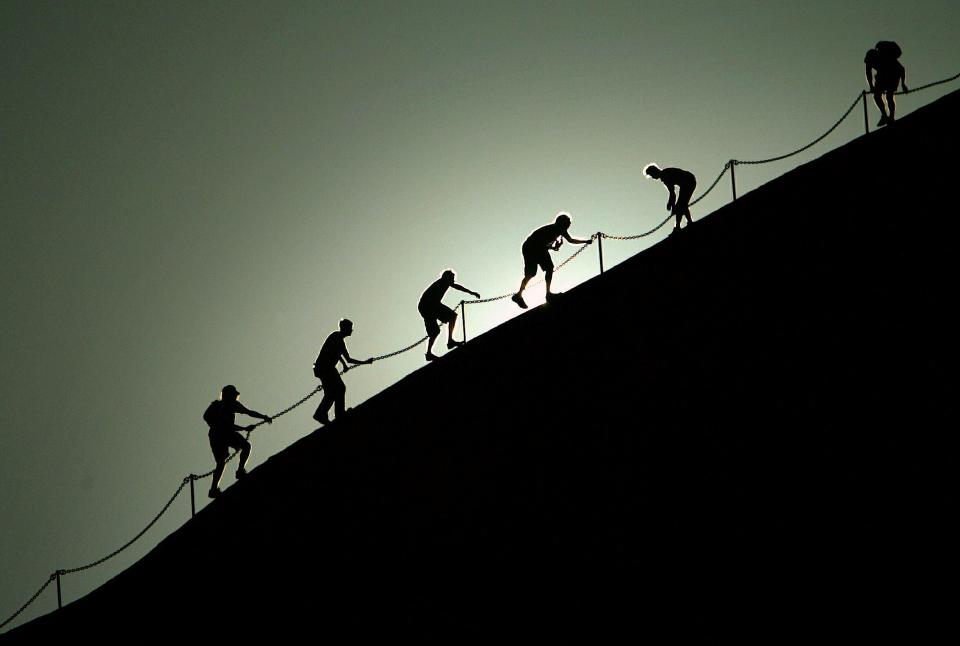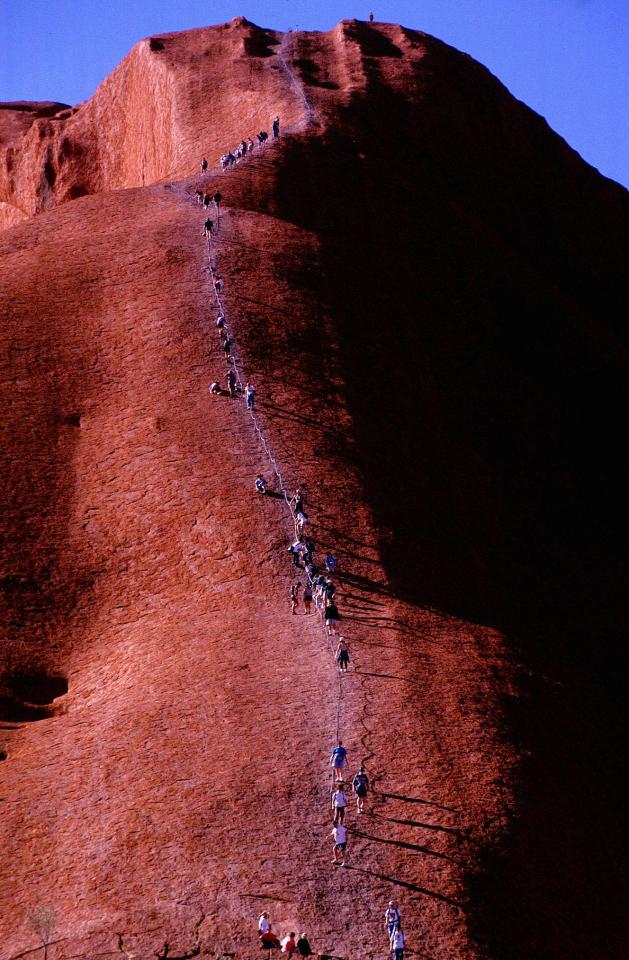Tourists to be BANNED from climbing Australia’s iconic Ayers Rock as it is deemed ‘sacred’ by Aboriginal land owners
More than 60,000 people each year ignore please from Aboriginal land owners and climb this historic site. But after 70 years of tourism, the act has been officially banned

VISITORS to one of Australia's most iconic landmarks will no longer be allowed to climb the site.
Uluru, also known as Ayers Rock, is a globally recognised red-rock mass in the country's Northern Territory.
Recognised as a UNESCO World Heritage Site, the attraction has welcomed tourists for more than 70 years, who were able to climb the rock to see the views of broad desert plains from the top.
But now the managers of the tourist destination, the Uluru-Kata Tjuta National Park, have said they will be closing it off to tourists that wish to climb.
Uluru is considered sacred to the Aboriginal people of the region, who were handed back the land title for the area in 1985.
Despite their ownership, and signs on the rock asking people not to climb it, as many as 60,000 visitors travel to the top of Ayers Rock every year.
Uluru-Kata Tjuta National Park board chairman Sammy Wilson said: "It is an extremely important place, not a playground or theme park like Disneyland.
"If I travel to another country and there is a sacred site, an area of restricted access, I don't enter or climb it, I respect it.
"Closing the climb is not something to feel upset about but a cause for celebration.
"Let's come together; let's close it together."
Anyone desperate to complete the climb will have to do so before October 26, 2019, after which date it will be illegal for anyone to scale the site.
Safety has always been a major concern for climbers of Uluru, with 35 deaths across 70 years of tourism activity.
In 2016, three tourists had to he rescued by helicopter after they fell into a crevasse while trying to climb the rock.














